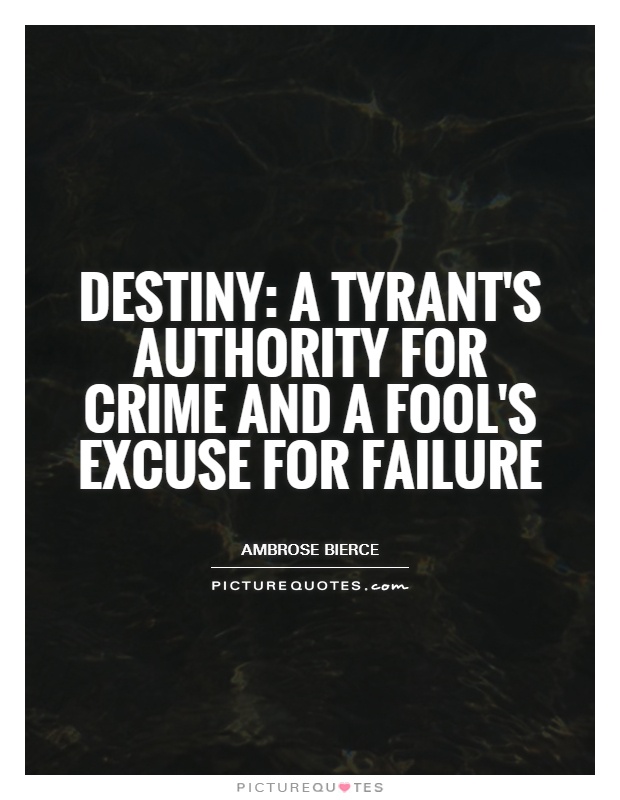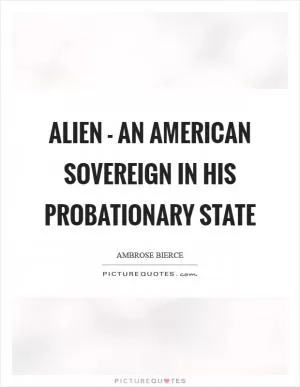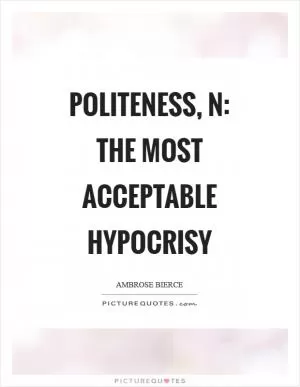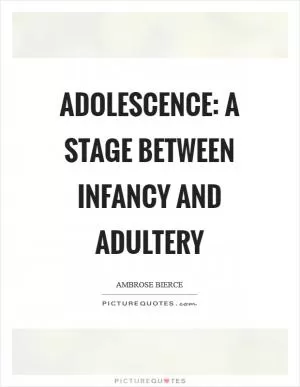Destiny: A tyrant's authority for crime and a fool's excuse for failure

Destiny: A tyrant's authority for crime and a fool's excuse for failure
Ambrose Bierce, a renowned American writer and satirist, was known for his sharp wit and cynical view of the world. In his works, he often explored themes of fate, destiny, and the human condition. One of his most famous quotes, “Destiny: A tyrant's authority for crime and a fool's excuse for failure,” encapsulates his belief that people often use the concept of destiny as a way to justify their actions or explain away their shortcomings.Bierce saw destiny as a convenient scapegoat for those who wanted to avoid taking responsibility for their choices. By attributing their actions to fate, individuals could absolve themselves of guilt and avoid facing the consequences of their deeds. In this way, destiny became a “tyrant's authority for crime,” allowing those in power to manipulate the narrative to suit their own interests.
At the same time, Bierce recognized that destiny could also be used as a crutch by those who were too afraid or lazy to take control of their own lives. By blaming their failures on fate, individuals could avoid the hard work and effort required to achieve their goals. In this sense, destiny became a “fool's excuse for failure,” providing a convenient justification for their lack of success.
Bierce's cynical view of destiny reflects his belief in the importance of personal agency and accountability. He believed that people should take ownership of their choices and actions, rather than relying on external forces to determine their fate. By rejecting the idea of destiny as a predetermined path, Bierce encouraged his readers to embrace their own agency and strive to create their own destinies.












 Friendship Quotes
Friendship Quotes Love Quotes
Love Quotes Life Quotes
Life Quotes Funny Quotes
Funny Quotes Motivational Quotes
Motivational Quotes Inspirational Quotes
Inspirational Quotes